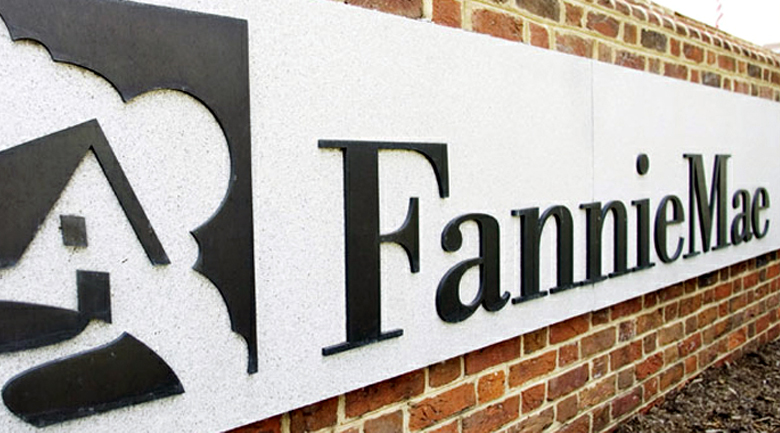
Is Fannie Mae in the Hot Seat?
Over the last few months, there has been quite a bit of Internet squawking about the GSEs approach to short sales and foreclosures, particularly Fannie Mae (who seems to rule the roost). Allegations are being made that Fannie Mae is forcing underwater borrowers into foreclosure by not approving short sale transactions. Specifically, there is a national trend where short sale values on Fannie Mae properties are coming in significantly above market value. And, since nobody can qualify for a loan above market value, the properties then end up in foreclosure.
In looking back over the last few years, this may not be anything new. In a Fannie Mae Announcement made in August of 2010, Fannie Mae stated that they would penalize servicers that “languished” too long in the processing of short sales. Additionally, Fannie Mae has long had a policy of frowning upon short sales for borrowers that have missed more than 12 months of mortgage payments.
The Irony of Streamlined Short Sales
On November 1, 2012, Fannie Mae and Freddie Mac stated that they would have streamlined guidelines for the processing of short sales. Those guidelines stated short sales would be processed in no more than 60 days, as many of the tasks that were previously delegated to Fannie Mae and Freddie Mac could now be handled directly by the servicers.
Yet the irony is that the valuations are still coming back too high, forcing distressed borrowers into foreclosure. Mortgage servicers could now quickly decline short sales within the 60-day “streamlined” period.
Fannie Mae Foreclosures
When Fannie Mae lists an REO, the property is generally listed above the current market value. They advertise the property and review all offers but prefer for borrowers to obtain a HomePath® loan. With the Fannie Mae HomePath® loan, no appraisal is required. With no appraisal, the buyer could pay 10% or even 20% over market value. The new owner of the Fannie Mae REO now owns a property with a loan more than market value; the owner is now upside down like the short sale seller that couldn’t get his short sale approved just a few months before.
One additional policy that people are chattering about is the Fannie Mae flipping rule. If an investor buys a Fannie Mae owned property, there is a deed restriction which states that the property cannot be sold for more than 120% in the first 90 days—thus discouraging rehabilitation experts from purchasing Fannie Mae properties.
Where Does this End?
The overall consensus seems to be that these Fannie Mae policies punish the distressed borrower and work to the financial benefit of Fannie Mae. You could argue that any entity can do what they want. It’s debt settlement. If Fannie Mae does not want to settle with the borrower, that’s their choice. However, since the United States Government (that’s us folks) owns the largest stake in Fannie Mae, these policies are definitely giving people something to squawk about.
Melissa Zavala is the Broker/Owner of Broadpoint Properties and Head Honcho of Short Sale Expeditor®, and Chief Executive Officer of Transaction 911. Before landing in real estate, she had careers in education and publishing. Most recently, she has been able to use her teaching and organizational skills while traveling the world over—dispelling myths about the distressed property market, engaging and motivating real estate agents, and sharing her passion for real estate. When she isn’t speaking or writing, Melissa enjoys practicing yoga, walking the dog, and vacationing at beach resorts.









































Brad Officer Real Estate
February 11, 2013 at 4:08 pm
I’m seeing valuations come back way too high on almost every short sale. The valuation dispute is now a common process in almost every short sale.
The other trend I’m seeing is the servicer offering DILs when values are off. Sellers are jumping at them!
Lisa Johnson Sevajian
February 11, 2013 at 5:06 pm
Thank you for shining some light on a touchy subject in our industry. By demanding higher than market sale prices for short sales they create quite an inventory to resell as foreclosures. Marking up the prices on the inventory as foreclosures and creating incentives for borrowers to buy them without appraisals eliminates necessary oversight and protection for the borrower. The buyer is then locked into a loan higher than market value and most likely upside down from the day they take ownership. The fannie mae backed loans that I am working on as short sales come back with bpo evaluations that are laughable with no rhyme or reason and certainly no consideration of the actual comps.
Michelle DeRepentigny
February 12, 2013 at 9:33 pm
There are many documented cases of Fannie Mae issues with short sales. However, I question the statement “When Fannie Mae lists an REO, the property is generally listed above the current market value.” In addition to the BPO provided by the listing agent, Fannie Mae is mandated to obtain an appraisal prior to marketing the property. Fannie Mae also tracks the execution rate (between appraisal value and sales price) and penalizes appraisers that trend significantly low OR high.